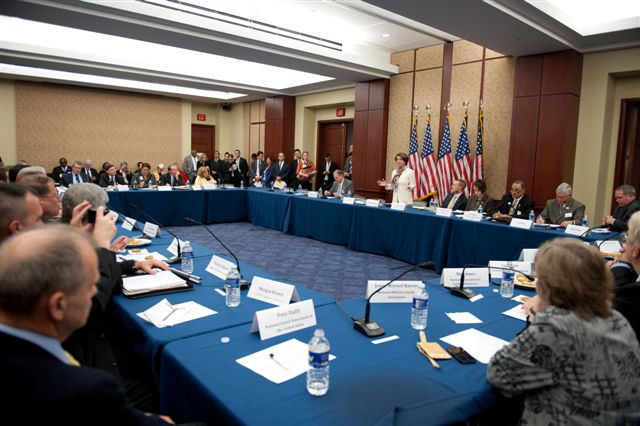
During a recent roundtable with 31 veterans and military service organizations held by House Minority Leader Nancy Pelosi (D-CA) and attended by key Democratic Members of Congress, VetsFirst was asked to discuss the unique needs of veterans with significant disabilities striving to return to the workforce following their military service.
Disabled veterans, like all people with disabilities, encounter barriers to obtaining employment as a result of their disabilities. These barriers include access to needed training and supports and misconceptions about the abilities of veterans with significant disabilities.
VetsFirst discussed two specific barriers that hinder disabled veterans in returning to employment: access to VA health care and lack of knowledge among employers about workplace accommodations.
First, health care is an important factor in determining whether someone with a disability is able to work. Because of the incidence of post-traumatic stress disorder among the veterans of today’s wars in Iraq and Afghanistan, VetsFirst is concerned about access to timely, effective VA mental health services. Without proper health care, these veterans will not have the foundation they need to be successful in the workforce.
Second, too many employers still do not know that the overwhelming majority of accommodations that can help veterans with significant disabilities be successful are inexpensive to implement. Specifically, two-thirds of reasonable accommodations cost less than $500. Also, accommodations needed for veterans with mental health concerns may be as simple as providing a flexible work schedule. Employers and disabled veterans must work together to ensure that the work environment does not hinder performance.
VetsFirst informed the roundtable that unless barriers unique to veterans with significant disabilities are addressed, obtaining and maintaining meaningful employment may not be an attainable goal. That’s why employment for disabled veteran remains one of our top priorities.
